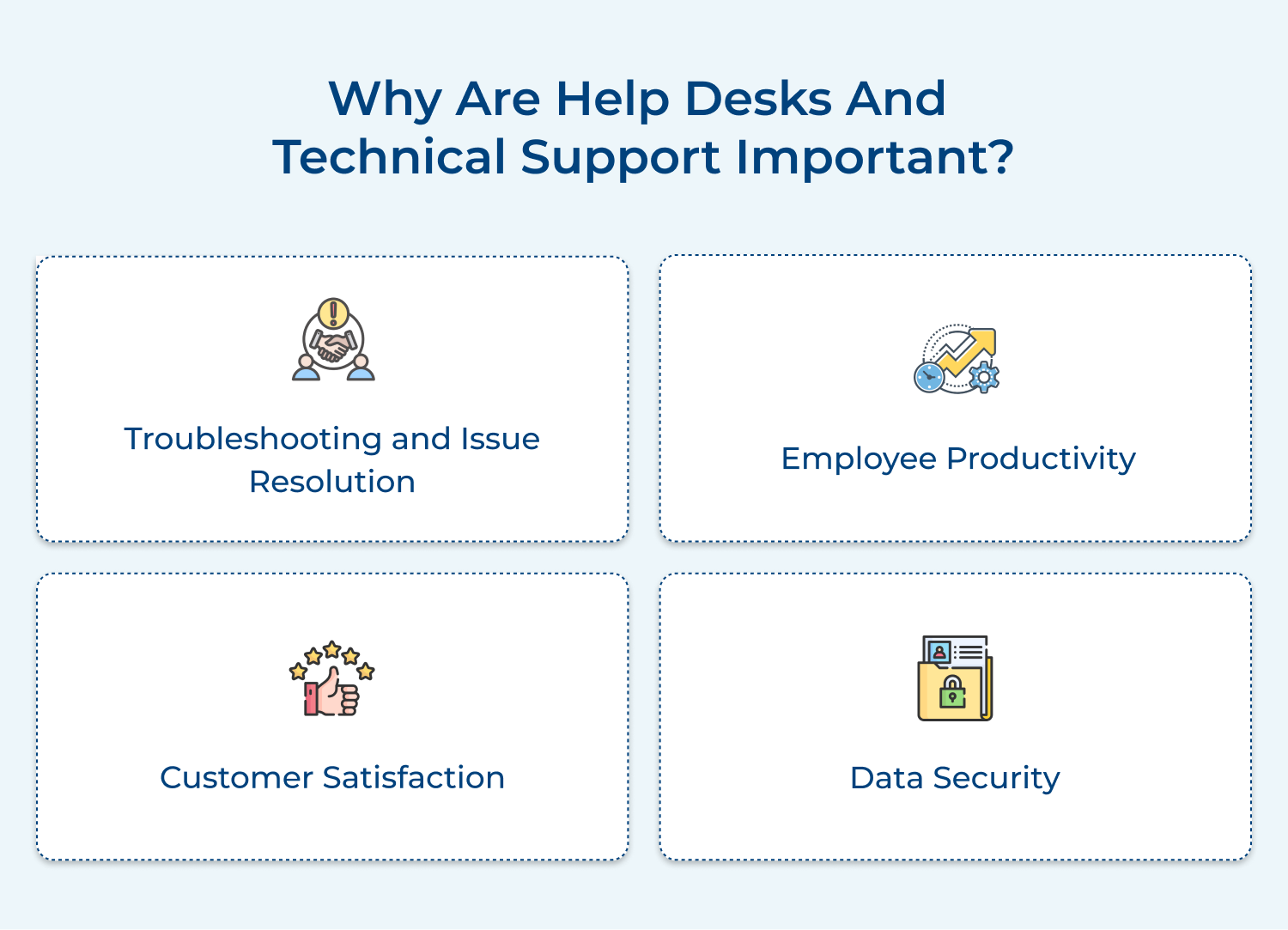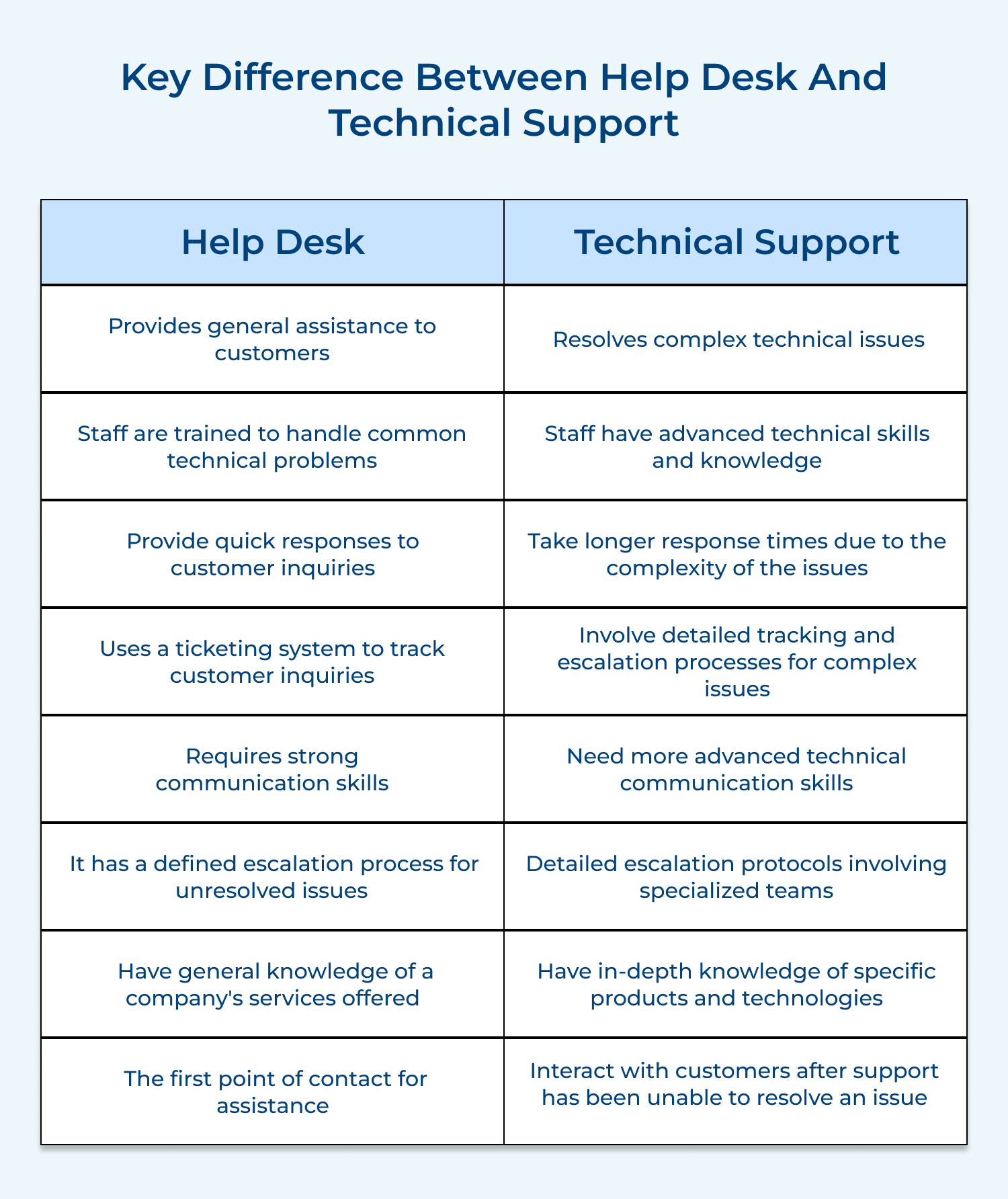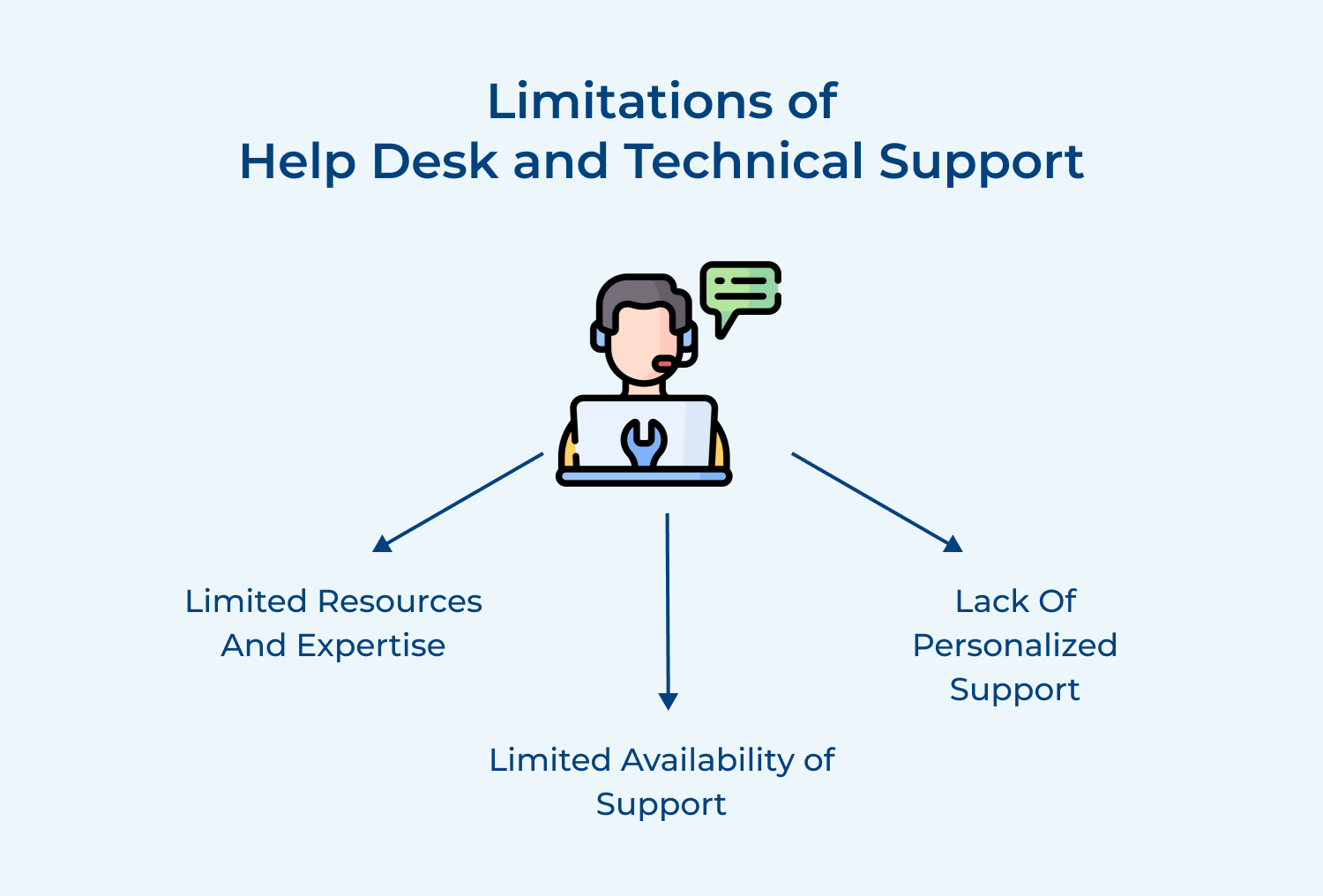1. Scope of Help Desk Support
Help desk support involves providing general assistance and guidance to customers who are experiencing technical issues. It can include answering questions, providing troubleshooting tips and guiding users through basic tasks.
Technical support is more specialized and focuses on resolving complex technical issues that require in-depth knowledge.
2. Expertise Level of Customer Representatives
Help desk staff are usually trained to handle common technical problems and provide basic solutions. Support staff are usually entry-level professionals who provide first-line support and escalate more complex issues to technical support teams.
Technical support experts have advanced technical skills and knowledge to address more complex issues that require specialized expertise.
3. Response Time of Consumer Queries
Help desk support is often geared towards providing quick responses to customer inquiries and resolving issues on time. It aims to ensure customer satisfaction and productivity.
As technical support is related to complex issues it may have longer response times due to the issues being addressed and the need for thorough troubleshooting.
4. Ticketing System
Help desk support often uses a ticketing system to track customer inquiries and resolutions. Staff use basic tools such as ticketing systems, knowledge bases and remote desktop software to assist customers with technical issues.
Technical support also utilizes ticketing systems but involves more detailed tracking and escalation processes for complex issues. Teams use advanced diagnostic tools, monitoring systems and specialized software to resolve complex technical problems.
5. Training and Certifications of Experts
The help desk teams receive basic customer service training and general technical knowledge. Teams may not require specialized certifications, but they often have general IT certifications such as CompTIA A+ or Microsoft Certified Professional.
Technical support champions have specialized training and certifications in specific technologies or products. They have advanced certifications in specific technologies, such as Cisco Certified Network Associate (CCNA) or Microsoft Certified Solutions Expert (MCSE).
6. Communication Skills of Staff
To deliver help desk support strong communication skills are required to effectively assist customers and explain technical concepts clearly.
Technical support expert specialists may also need strong communication skills but may also require more advanced technical communication skills to address complex technical issues.
7. Problem-Solving Abilities
Help desk support focuses on providing quick solutions to common technical problems.
Technical support specialists are often required to have strong problem-solving abilities to diagnose and resolve complex technical issues.
8. Escalation Process
The escalation process is defined in help desk support for unresolved issues that need to be escalated to higher-level support. The staff escalate tickets to technical support teams if they cannot resolve an issue within their scope of expertise.
The escalation protocols for technical support are more detailed and involve specialized support teams. Technicians have the authority to escalate issues to higher levels of support, such as network engineers or system administrators.
8. Product Knowledge
Help desk support staff may have general knowledge of a company’s products or services offered by the company and can provide basic information to customers.
The technical support experts hold in-depth knowledge of specific products, technologies, or software applications. It allows them to troubleshoot and resolve complex technical issues effectively.
9. Interaction with Customers
Help desk support is often the first point of contact for customers seeking assistance. Often more focused on providing excellent customer service and ensuring end-users are satisfied with the support they receive.
Technical support specialists may interact with customers after help desk support has been unable to resolve an issue, which may involve more in-depth technical discussions and troubleshooting.
Limitations of Help Desk and Technical Support
The help desk and technical support are essential components of any business, assisting customers and employees who encounter issues. While these services are invaluable in keeping operations running smoothly, certain limitations can hinder their effectiveness.







